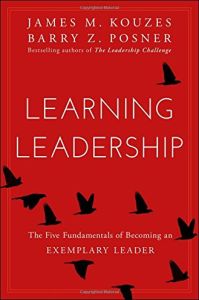Join getAbstract to access the summary!

Join getAbstract to access the summary!
James M. Kouzes and Barry Z. Posner
Learning Leadership
The Five Fundamentals of Becoming an Exemplary Leader
Wiley, 2016
What's inside?
Everyone leads, and anyone can achieve leadership greatness.
Recommendation
Frequent leadership authors James M. Kouzes and Barry Z. Posner will convince you that exemplary leaders make themselves great – not because of their DNA or “natural talent” – but because they work hard. Kouzes and Posner back up their claims with extensive references to current research. Their manual aims mostly at helping you on your journey to effective leadership. The authors lay out several fundamentals of leadership supported by about a dozen practices culled from their rich experience. They repeat these fundamentals – self-belief, a drive for excellence, on others, lifelong learning, servant leadership, authenticity and practice – to drive their message home. getAbstract recommends their insights and practices to new supervisors, seasoned managers and anyone who develops leaders.
Summary
About the Authors
James M. Kouzes and Barry Z. Posner teach business at Santa Clara University. They co-wrote The Leadership Challenge, a business leadership classic.


























Comment on this summary